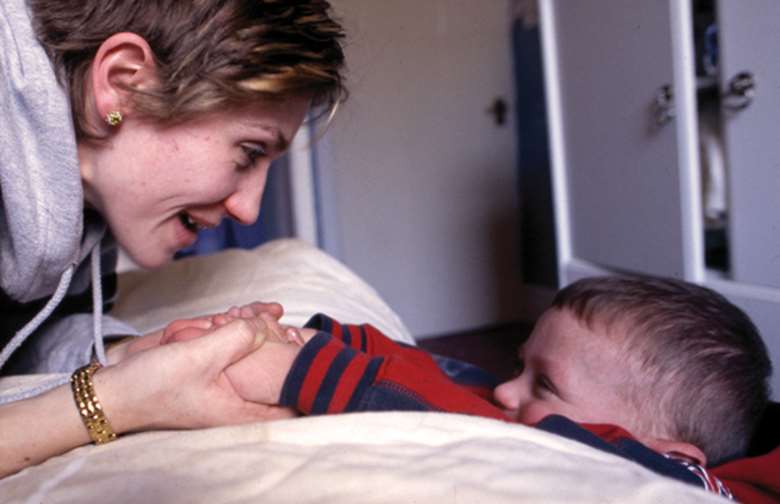Neglect in early years can cause lasting brain damage
John Freeman
Thursday, March 17, 2016
How neural frameworks that usually develop in young children in an ordinary family environment fail to develop properly in the absence of stimulation.

From conception onwards, there are many things that can go wrong with the development of children's brains including physical trauma, lack of oxygen or essential nutrients, the presence of toxins and genetic defects. However caused, they can all have a deep, life-long impact.
One of the most insidious causes of developmental brain damage is, simply, neglect. Until relatively recently, neglect was seen as somehow less fundamental than physical trauma, as it was assumed that if the causes of the neglect could be removed, everything would be alright. So, when children were adopted and placed with caring parents in a richer and more stimulating setting, it was hoped that they would then develop normally.
Needless to say, it is not as simple as that. Nicolae Ceausescu adopted social policies in Romania that prohibited contraception and abortion, and economic policies that led to families not being able to support many of their children. By 1989, 100,000 children were living in orphanages. After the regime fell in December 1989, one of the most horrifying discoveries was that these children were living in extremely harsh and inhumane conditions, with almost no personal contact and minimal care, with small children confined to their cots 24/7.
Large numbers of these children were then adopted abroad with the very best of intentions. The outcomes for these children, many of who are now in their late 20s, should be illuminating for makers of social policy. It is not possible to be certain on causation, as the neglect in the orphanages included both poor nutrition and physical abuse. In general, though, Romanian children adopted into new families below the age of two have developed relatively normally into adulthood. The children who were adopted above the age of two, however, have done much less well. Typical problems include long-term ADHD and language delay, and Reactive Attachment Disorder - severe problems with building effective relationships.
The conclusion from brain development research is that the neural frameworks that usually develop in young children by age two in an ordinary family environment simply fail to develop properly in the absence of stimulation. Later stimulation in an adoptive family does not work as hoped because these children have not developed the neural frameworks needed to process the new environment.
That is not an excuse for doing nothing, of course, and there are all sorts of therapies for these problems. Both children's and adults' brains are "plastic" and can develop and change, within limits. But the challenges are great and it's not easy to work round the limitations. To give a very familiar example, most children learn to speak fluently in their home language without any great effort, showing that the infant brain has a huge innate capacity to learn words and their meanings, grammar, sentence construction and so on. This can be contrasted with foreign language teaching in secondary schools, where the same task - acquiring a new language - is very much more difficult for older children, but can still be achieved with effort.
Since the brain is a physical organ, everything it does - including language and memory - has a physical manifestation. Reading this column changes your brain! If you don't think about the issues raised, the changes will be temporary. But if you are stimulated to think about the issues more deeply, and they are already in line with some of your other thinking, and if you come back to thinking about the issues later, your neural pathways will be changed more or less permanently, and you won't forget. You can only do this because, from infancy, your brain has developed so that new abstract thinking can take place, creating new neural frameworks that persist over time.
I have become convinced that we must do more to avoid brain traumas in the womb and for young children. Neglect leads directly to harm to developing brains, with long-term detrimental effects.
Thankfully, the Romanian orphanages are no more, and very few children now experience such extreme neglect, but social care policy makers and practitioners must do everything in their power to protect young children from neglect. As always, prevention is best, with early intervention a close second.
John Freeman CBE is a former director of children's services and is now a freelance consultant
Read his blog at cypnow.co.uk/freemansthinking




